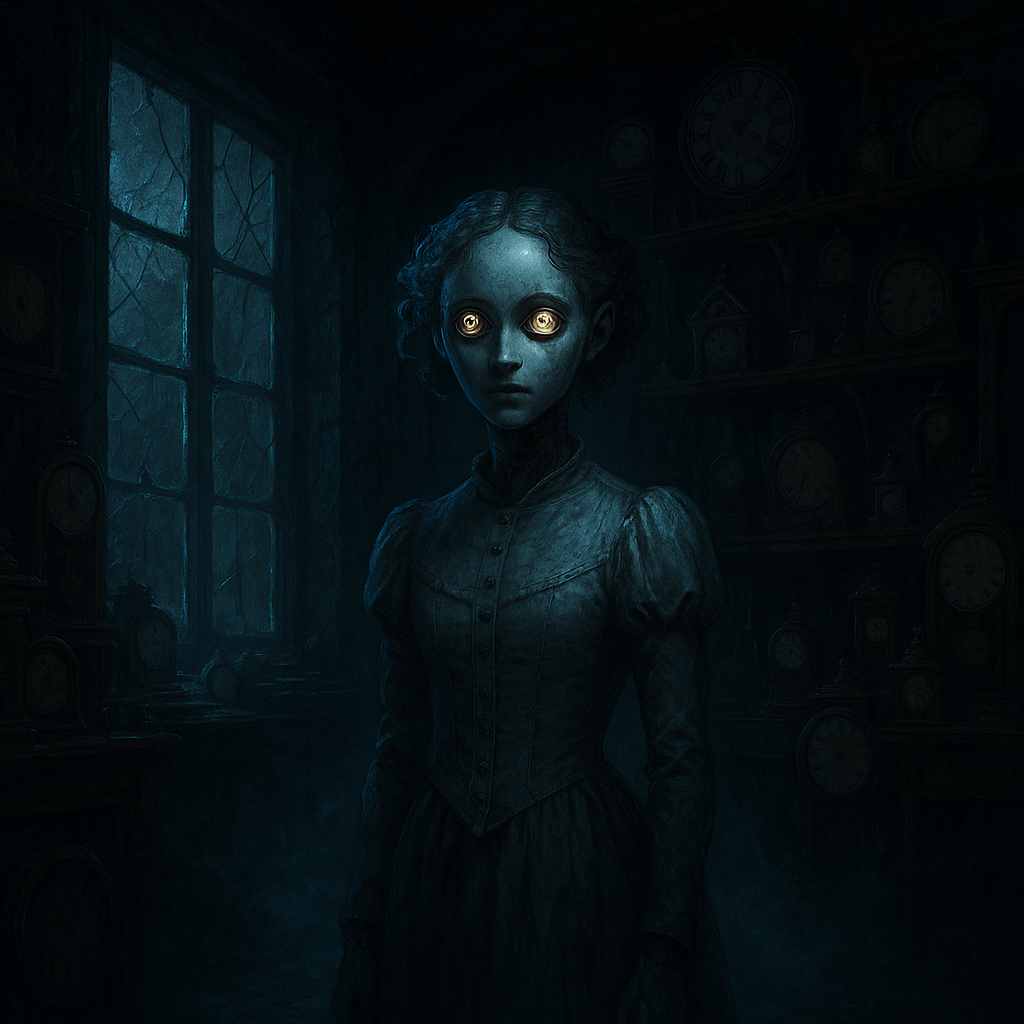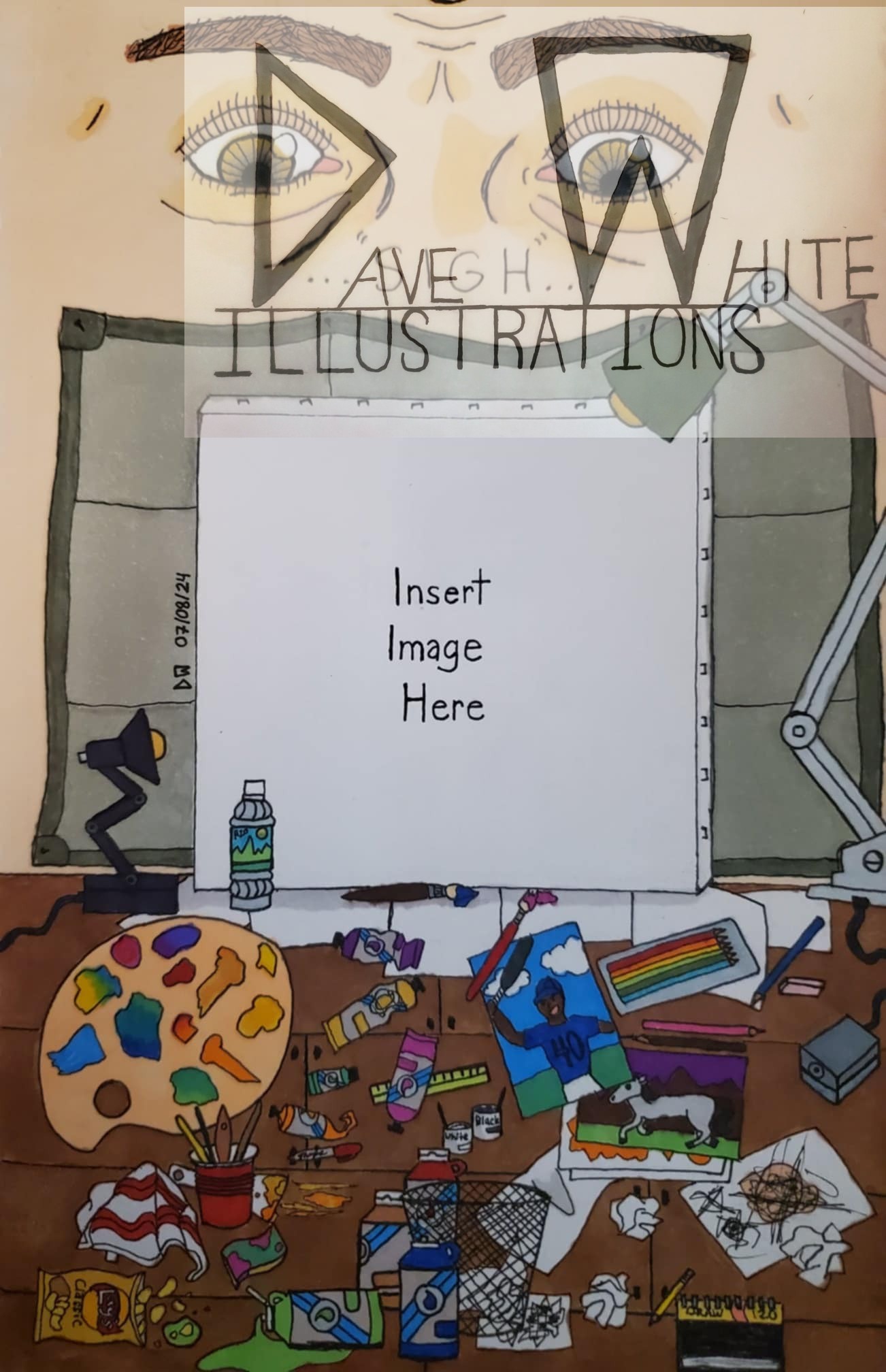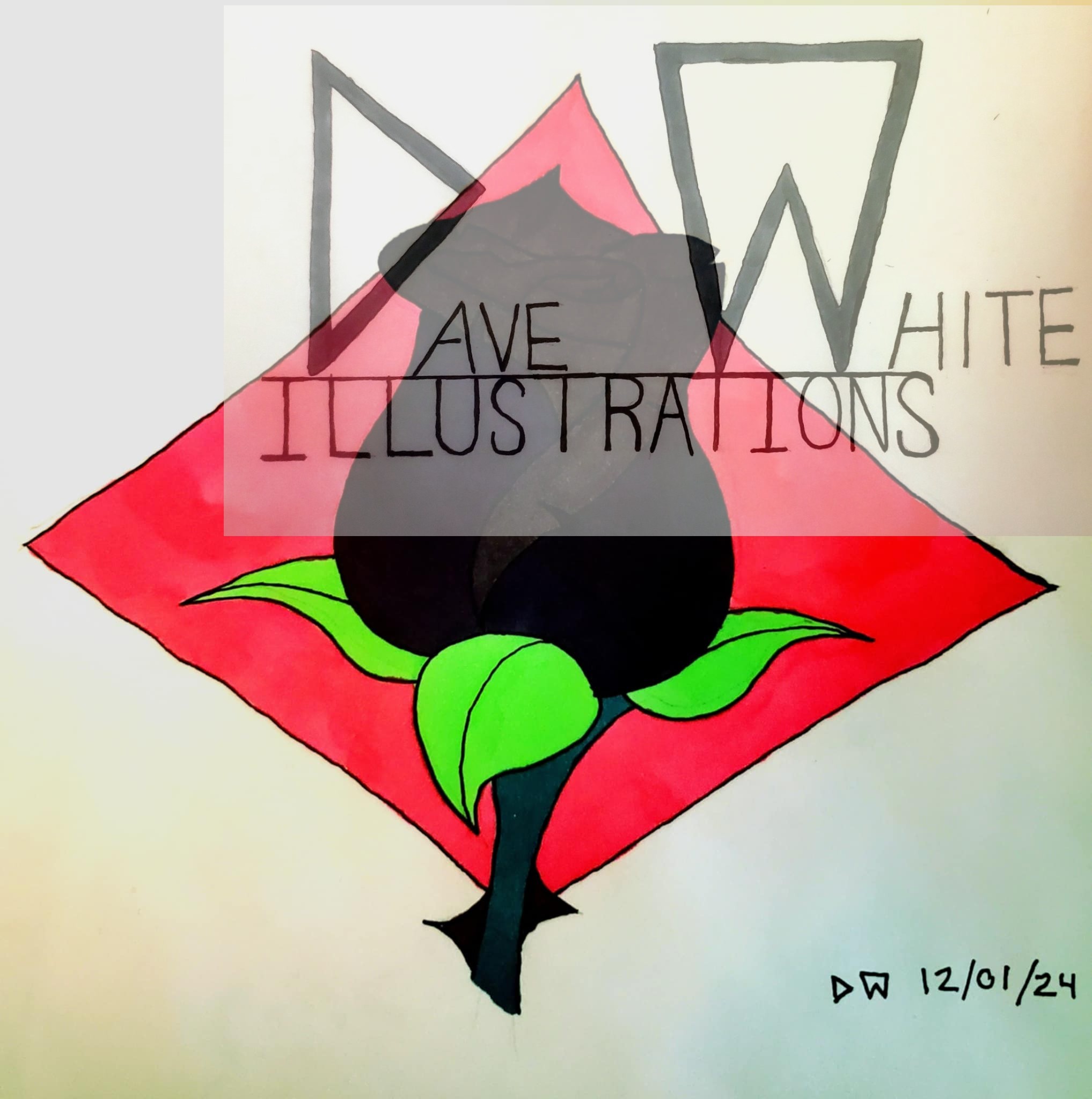The villagers had always said the clockmaker loved no one. His heart beat only for brass, for gears, for the endless ticking that filled his crooked house. Yet that was not entirely true. He did love something—though it was not truly human.
The girl appeared one winter, when the river froze black and even the wolves kept their distance from the village. He called her his daughter. But whispers began at once. No mother had ever carried her. No child had ever cried from his windows. And when she first stepped outside, pale and stiff, her movements jerking like a puppet’s, the villagers saw the truth.
Her hair was made of springs that shivered when she turned her head. Her eyes gleamed with tiny dials, hours turning endlessly within her gaze. Her chest gave no breath—only a sharp, steady ticking, too fast, too perfect. When she laughed, it rang like a cracked bell. When she wept, the sound was like a watch running down, sharp and metallic.
Children screamed at the sight of her. Mothers clutched their infants tighter. The priest warned the villagers: “No man should build what God alone can give.” Yet still the clockmaker wound her each morning, turning the great brass key buried in her back until the air shrieked with the sound of tightening springs.
I saw her once, standing in the doorway of the shop. Her eyes turned toward me, the little dials inside them flickering.
“Do you feel pain?” I asked, though my mouth had not meant to form the words.
Her lips stretched thin, and for a moment her teeth looked too sharp.
“It oils the chain,” she whispered, voice brittle as snapping wire.
Another time, when I passed her window at dusk, I saw her mouth move though no sound came. Drawn by terror more than curiosity, I pressed my ear to the glass. A whisper hissed out: “Time cages me.” The words hung in the air like frost.
Her father changed after that. His hands, once steady, shook with fever. His eyes sank deep, and his skin smelled of iron and decay. Villagers claimed they saw him digging in the yard at night, burying strange shapes, only to dig them up again before dawn. The clocks in his shop began to strike at the wrong hours—thirteen, fourteen, fifteen—each chime sharp enough to split the air.
And then one morning, the ticking stopped.
The girl lay silent, her eyes fixed wide, her gears stilled. Her father howled so loud the crows rose screaming from the forest. They said he buried her behind the house, but others swore he carried her inside each night, clawing at her body, replacing broken springs with his own bloodied fingers, trying to force her to breathe again.
That’s when the nightmares began.
Children woke shrieking, swearing they heard the sound of footsteps scraping at their windows. Men found their clocks running backward, the hands gouging grooves in the glass. The priest went mad—he was discovered in the churchyard, his own ribs split open, a clock mechanism ticking inside the cage of his chest.
And the laughter… God, the laughter. Thin, metallic, endless. It came from nowhere, everywhere. Some heard it in their cellars, others in their dreams. I heard it once in my own home, when every clock in the house struck midnight all at once. It was her laugh—sharp as nails dragged across stone.
They say the clockmaker vanished, though I wonder if he was taken. Some claimed they saw him wandering the forest, his body jerking with unnatural motions, his arms moving like pendulums, his mouth hanging open in a scream that never ended.
The house remains. Its windows are black, its walls rotten, but if you stand outside long enough, you will hear it: the faint creak of springs, the scrape of gears grinding against bone. And if you dare look into the shadows, you might see her standing there.
Her eyes will turn to you, and the dials inside them will spin faster, faster, until the air hums with the roar of time collapsing.
And then she will whisper what she whispered to me:
“It oils the chain.”
And the clocks—every clock within a mile—will begin to chime. Thirteen, fourteen, fifteen, the numbers climbing higher, until you realize they are not hours at all, but a countdown.
When it reaches one, you will understand what the villagers never spoke aloud.
The clockmaker did not build her to keep time.
He built her to end it.
And in her silence, she waits.




Leave a Reply